How (and Why!) to Write Your Own Obituary
If you’ve ever had to write an obituary for a loved one, you know what an intimidating responsibility it can be—to try to sum up someone’s life on a piece of paper is nothing short of profound. To ease the difficulty during the period of loss, many individuals are choosing to write their own obituaries—a task that can feel difficult, but it can also be a very meaningful activity that can be revisited from time to time. So, with great respect, here are some basic instructions on how to write your own obituary.
The difference between an obituary and a death notice
Don’t confuse an obituary with a death notice – a death notice simply announces the passing and informs the public of the funeral, memorial, or celebration of life services. The obituary should be more of a true tribute, a chance for you to share about your interests, accomplishments, and a list of your surviving family members. And speaking practically, it would not be possible to pre-write a death notice other than to share your location preference for the funeral.
Getting Started Writing Your Own Obituary
If you open your local newspaper, you may find that the obituaries are a mix of short, simplified biographies, followed by the death notice information including their surviving family members and service information. You want your obituary experience to be unique, so you may not want to follow the traditional format found in newspapers and obituary websites.
One of the personal benefits of writing your own obituary is that it can be a powerful self-discovery activity, one that is both therapeutic and personally challenging. You have the opportunity to give others a glimpse of the person you really are, and it can also be a legacy you can pass onto your children, grandchildren and great-grandchildren.
To make your obituary as unique as you are, it may help to read other thoughtful, clever, or even humorous notices from others who decided to write their own obituaries before they died. Do a quick Google search for unique obituaries or go to your local bookstore to find compilations of memorable obituaries that you might enjoy reading.
Writing your own obituary should be a unique experience, and you may not want to follow someone else’s format. However, here are some basic elements that you can include to get you started:
- Basic elements of an obituary
- Your full name, including maiden name(s), middle names, nicknames and suffixes
- Where you were born and family information like where/how you grew up
- Achievement information including degrees, career highlights or anything else important to you
- Places you have lived
- Marriage information and a list of your children, grandchildren, etc.
Journaling Prompts to Inspire your Obituary
Your obituary can frame for others how you wish to be remembered. This could be your personality, devotion to family, or your work as a volunteer. Beyond achievements, it can also show your unique qualities as a person. It really can be whatever you want it to be.
Here are some writing prompts to help with inspiration. You can use these to journal first, and then decide if you want to include them later.
Why I did …
This could be anything you’ve done in your life that you want to remember, such as joining the military, choosing a specific career path, living in a foreign country, or quite the opposite—choosing to never leave your hometown.
My life was special because …
What events in your life made it extra special? Was it a wonderful spouse, having a dozen grandchildren, being part of a special church or community group or learning a unique trade?
I wish I had/hadn’t …
What do you wish you had (or had not!) tried? Maybe it was something you were afraid of, like skydiving or taking a hot air balloon ride, or maybe you wish you’d never moved away from the city you lived in when you were 30. Why is this important to you?
Use these prompts to get your creativity flowing. Write down memories of people, places, and experiences. You don’t have to decide what’s in your obituary, just write freely. You might even decide to write a memoir out of it!
Funeral Services Can Provide Closure for your Family
Just like writing a eulogy or being part of a funeral service, it is important that your family takes steps to grieve after you pass. Receiving sympathy and love from others at a memorial service, for example, can be an important part of what is called the “acute loss period” of grief. Remember, the funeral services are really about the people left behind after you pass, to help them grieve, get support, and find closure.
In the decades of service that we have provided to area families at Tharp Funeral Home & Crematory, something we have never heard a family say is, “I wish my dad had NOT preplanned.”
So, while you are writing your obituary, take the opportunity to have a special talk with your loved ones to explain to them your wishes—and allow them some time to express their wishes of how they would like to honor you after you pass. This can help relieve your loved ones of a tremendous burden after you have passed.
Other Steps in Making Advanced Arrangements
Now that you have some direction on writing your own obituary, you can start the process today. If you want to go beyond this first big step in easing your family’s burden when you pass, you can learn about the complete pre-planning process.
Tharp Funeral Home offers free virtual preplanning webinars. This allows you to take control of your entire funeral process and eases the burden on your family. We also have several planning guides available, including a preplanning guide , cremation guide and even an end of life, estate planning guide.
And as always, we have dedicated preplanning funeral directors at each of our Tharp locations ready to answer any questions you may have!







